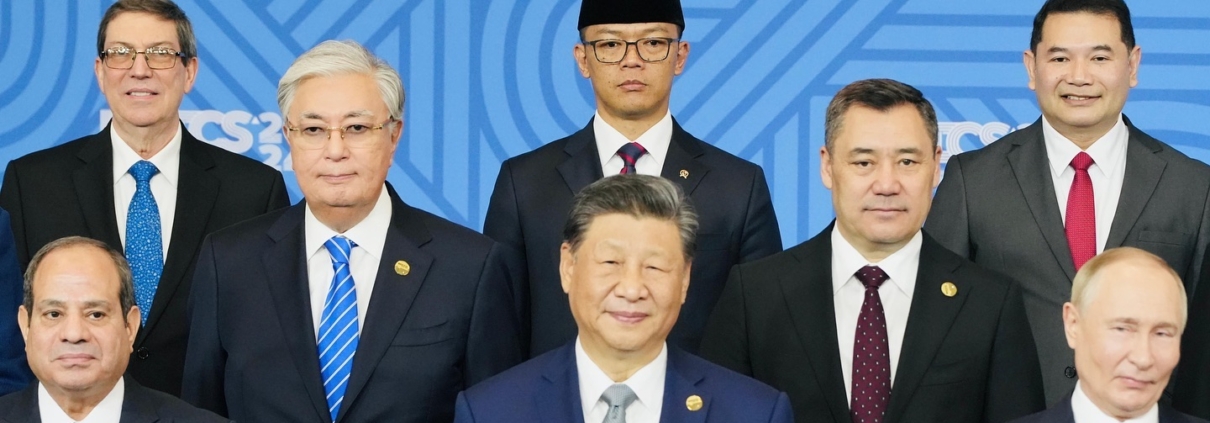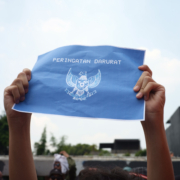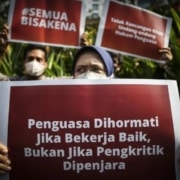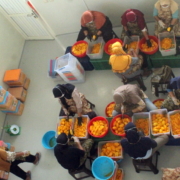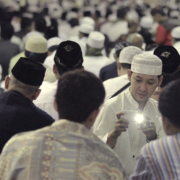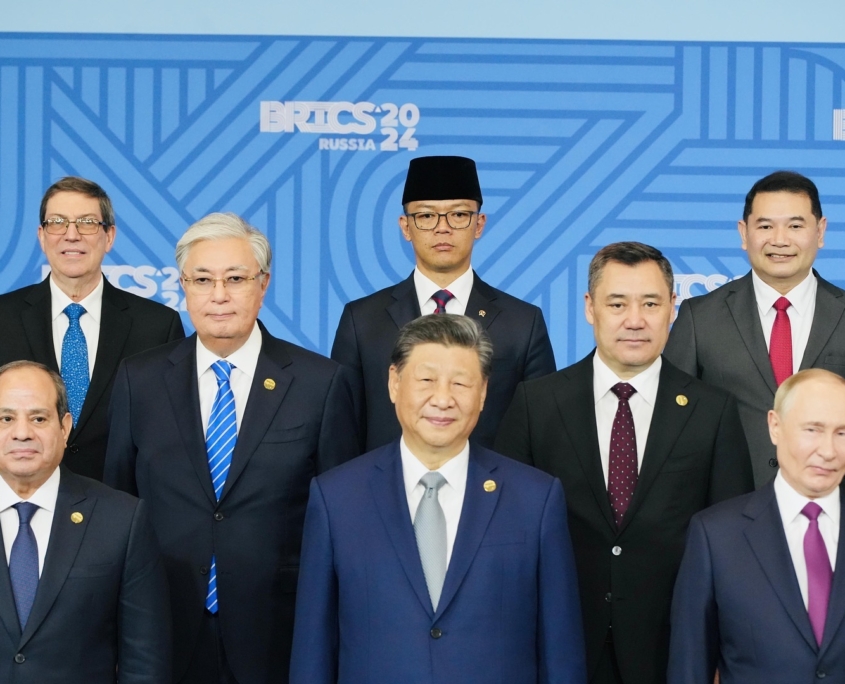
Indonesian Foreign Minister Sugiono at the 16th BRICS summit in Russia. Photo from instagram.com
On 21 October, during the second day of his presidency, President Prabowo Subianto convened his first cabinet meeting. The one conspicuous absence from that meeting of what some have dubbed an ‘obese cabinet’ – former president Joko “Jokowi” Widodo’s cabinet comprised a mere 34 members whereas Prabowo’s comprises 109 – was Prabowo’s foreign minister and protégé, Sugiono.
Rather than attend the first ‘merah dan putih’ (red and white) cabinet meeting, Sugiono went straight to Kazan, Russia, the site of the 16th BRICS Summit. There, Sugiono confirmed that the process of Indonesia joining the 32-member state forum had commenced. This was something from which President Jokowi refrained during his presidency, in part because he believed it would signal to the West that, amidst growing US-China tensions, Indonesia was tilting toward the China-led bloc, when, in fact, it wasn’t.
Sugiono, understandably, qualified that Indonesia’s accession to BRICS reflected not Indonesia’s preference for a certain military or economic bloc, but rather its desire ‘to actively participate in every forum’ – a hallmark of Indonesia’s longstanding foreign policy of non-alignment.
On the sidelines, Sugiono also met with the Secretary General of the Executive Committee of the Palestinian Liberation Organisation (PLO), Hussein Ali Sheikh. He affirmed Indonesia’s solidarity with the Palestinian people, as well as its commitment to a Two-State Solution, to the continued provision of humanitarian aid to the Palestinian people, and to the promotion of peace and stability in the Middle East, even using BRICS as a platform to do so.
But Sugiono’s first official visit aside, who is he and how did he become Indonesia’s newest foreign minister?
Born in Takengon, Aceh, on 11 February 1979, Sugiono completed his secondary schooling in 1997 at Taruna Nusantara Senior High School, a select-entry school in Magelang, Central Java. There, he met classmate and son of President Susilo Bambang Yudhoyono, Agus Harimurti Yudhoyono, who is now Prabowo’s coordinating minister for infrastructure and regional development. With the help of a scholarship arranged by Prabowo, who was then commander-in-chief of Indonesia’s special forces, Kopassus, Sugiono then attended Norwich University – the Military College of Vermont in the United States.
Returning to Indonesia with a Bachelor of Computer Science, Sugiono enrolled at the Indonesian Military Academy in Magelang, where he attained the rank of second lieutenant in the infantry corps. Thereafter, while in the military, Sugiono served as Prabowo’s personal assistant. This was the first stage of Sugiono’s professional association with Prabowo.
In 2008, after leaving the military, Sugiono assisted Prabowo in establishing the Great Indonesia Movement (Gerindra) Party. In 2020, he became the party’s deputy chairman. A year earlier, however, Sugiono was elected to the People’s Representative Council (DPR) as representative of Central Java. Between 2021 and 2024, he also served as Gerindra’s fraction chief in the People’s Consultative Assembly (MPR) and was, until his most recent appointment, daily and general deputy chair of Gerindra’s general leadership team.
One could argue that Prabowo moulded Sugiono into his own ideological image. The fact that Prabowo retained 18 members of Jokowi’s cabinet – Sri Mulyani Indrawati as finance minister and Airlangga Hartarto as coordinating economy minister are among the notables he retained – but appointed Sugiono as his foreign minister, rather than reappoint the experienced Retno Marsudi, clearly signalled that Prabowo intends to be heavily involved in foreign policy making decisions.

President Prabowo Subianto and his foreign minister, Sugiono, at a military-style boot camp for his Cabinet members at the military academy in Malang, Central Java. Photo from instagram.com
And that one of his first decisions as president was to deploy Sugiono to Kazan suggests that what is likely to come is greater and more conspicuous global engagement. This will likely include requests for even more foreign investment and offers to play a middle-power mediator role, something Prabowo endeavoured to do vis-à-vis Russia and Ukraine in 2023 and again earlier this year, while defence minister under Jokowi.
This assessment does not necessarily align with the optics of Prabowo’s recent decision to invite academic John Mearsheimer – the world’s leading proponent of the international relations theory of offensive realism – to a gathering of his cabinet ministers and deputy ministers at Prabowo’s home in Hambalang, Bogor, West Java.
Some speculated that Mearsheimer’s attendance at Prabowo’s Hambalang mansion could portend a more assertive Indonesian foreign policy. Indeed, offensive realism theorises that in an anarchic international system, states will pre-emptively respond to what they perceive to be a threat to their own national security by exerting aggression and an overall offensive posture. Russia’s decision to invade Ukraine on 24 February 2022 because it perceived Ukraine’s joining NATO to be a threat to Russian national security is a topical example thereof – indeed, Mearsheimer argued exactly that just several months after Russia’s invasion.
But Indonesia is not in a position to be more assertive with its foreign policy. This is particularly true with regard to the most pressing regional issue, namely China’s repeated incursions into not just Indonesia’s exclusive economic zone (the 200-nautical mile zone off Indonesia’s shores), but those of its regional neighbours, contrary to the United Nations Convention on the Law of the Sea (UNCLOS).
Offensive realism might explain China’s repeated misconduct – why it continues to violate UNCLOS with impunity – but it seems plainly inapplicable to a country with a navy comprising a mere four obsolete submarines to police 5 million square kilometres of water, as is the case with Indonesia. Indeed, as several senior Indonesian diplomats and China specialists remarked to me several years ago, Indonesia, in fact, has no coherent and effective China policy. In lieu thereof, it does everything it can to maintain the regional status quo and deescalate any tensions resulting from Chinese belligerence.
Whether Prabowo can devise a coherent and effective China policy remains to be seen, but the reality of the situation is that the only feasible option at his disposal is to maintain the same approach vis-à-vis China – particularly given he himself has personal financial interests in China, as the late Faisal Basri once told me.
Prabowo and, by extension, Sugiono have already demonstrated their preparedness to up the ante in terms of Indonesia’s foreign engagement. The Prabowo administration, however, will remain constrained by the same geographical and military inferiority realities that essentially compelled the Jokowi administration to adopt a more defensive realist approach – that is, building ‘a balancing coalition to counter the aspirations, and discourage the assertive behaviour, of a rising and increasingly assertive power, such as China.’
So, while Indonesia’s foreign policy under Prabowo and Sugiono might appear more active – one might cynically argue more performative – circumstances beyond Prabowo’s power dictate that, substantively, it will likely be a continuation of that of the Jokowi administration.


